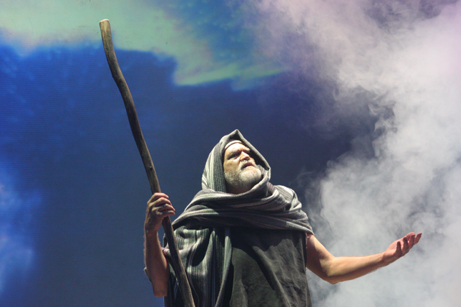Post Author: Bill Pratt
 Verses 1-5 remind the reader that 70 people came down to settle in Goshen, which is a district of Egypt situated in the northeast corner of the nation. The twelve sons of Jacob (Israel) are listed and grouped according to their birth mothers. The numbering of 70 is a reference back to Gen 46:27 where all of the descendants of Jacob who entered Egypt are named.
Verses 1-5 remind the reader that 70 people came down to settle in Goshen, which is a district of Egypt situated in the northeast corner of the nation. The twelve sons of Jacob (Israel) are listed and grouped according to their birth mothers. The numbering of 70 is a reference back to Gen 46:27 where all of the descendants of Jacob who entered Egypt are named.
In verses 6-7, we learn that after Joseph and all his brothers died, the Israelites experienced tremendous population growth. Note the similarity between Gen 1:28 and Ex 1:7. God had commanded Adam and Eve to be fruitful and multiply, and that is exactly what the Israelites have done.
Goshen was a land of great natural resources that allowed the Israelites to settle down and practice agriculture instead of being primarily nomadic, as their ancestors were. The stable food supply undoubtedly contributed greatly to their prosperity. Things were going so well for the Israelites, they had forgotten that they were strangers in a strange land. Their home was to be in Canaan, not Egypt.
Although the Israelites had lived in Goshen for hundreds of years, their life in Egypt was about to be massively disrupted. Egypt, like any other nation, experienced political turmoil and changes in governance. The writer of Exodus announces that a new king (Pharaoh) came to power, and this king, evidently, either knew nothing or cared nothing about Joseph’s role in Egyptian history.
Some historians have speculated that the new king knew about Joseph, but because the king was bringing a new regime into power that was very different ethnically (non-Semitic) from the previous regimes, he no longer trusted the Hebrews (who were Semitic) to align themselves with his regime’s interests. Since Goshen bordered Canaan, where Egypt’s enemies were located, the Israelites could easily ally themselves with Canaanite nations who wanted an easy path into the heart of Egypt.
The new Pharaoh’s first plan to deal with the Israelites was to enslave them. They would be forced to build the store cities of Pithom and Rameses. However, contrary to his plans, the Israelites continued to increase in number. The clear message here is that the Gentile king of Egypt cannot thwart God’s plans for his people. The Pharaoh’s plans simply backfire on him.
Starting in verse 15, Pharaoh tries plan B to stop the multiplication of the Israelites. He calls two of the Hebrew midwives to him (they were probably leaders or representatives of a much larger number of midwives), and commands them to kill the boy babies when they are born. The midwives, Shiphrah and Puah, however, decline to obey Pharaoh, and let the boys live.
The reason given for the midwives disobeying Pharaoh is that they “feared God.” The message to the reader is that when a person in authority over us gives us a direct command that contradicts God’s unmistakable will, we are to disobey.
The midwives, when questioned by Pharaoh, tell him that Hebrew women give birth more quickly than Egyptian women, and so the midwives arrive too late to kill the baby boys. In the context of the narrative, the midwives are obviously lying to Pharaoh, but they are lying to save lives.
It is reasonable to assume that Pharaoh is counting on the midwives to surreptitiously kill the newborns without the mothers realizing what is going on. The plan counts on the skills and obedience of the midwives to carry it out. If the Hebrew mothers catch on, they will simply avoid using the midwives.
If Shiphrah and Puah refused to go along, it is reasonable to assume that Pharaoh would find other midwives to kill the Hebrew boys. By convincing Pharaoh that the plan simply won’t work because of how quickly Hebrew women gave birth, Pharoah abandoned the plan altogether instead of drafting more midwives.
Pharaoh’s plan B, to control the Israelites, backfires on him, just as his first plan did. The Israelites “became even more numerous” and because the midwives feared God and saved the lives of the baby boys, the midwives were also rewarded with families of their own.
 Here is a typical conversation I’ve had on the blog with skeptics many times:
Here is a typical conversation I’ve had on the blog with skeptics many times: